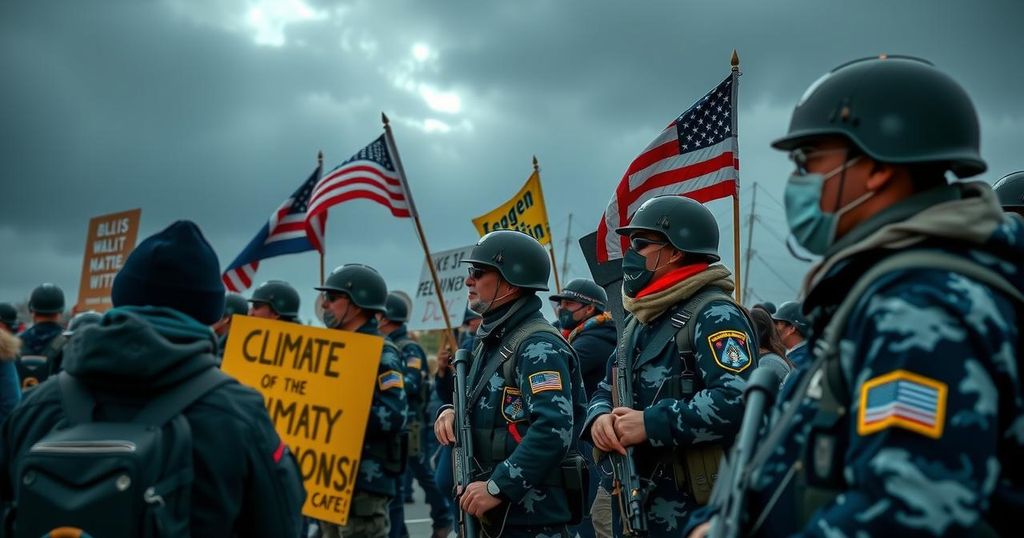Activists at COP29 Advocate for Climate Justice and Against Genocide

At COP29 in Baku, Azerbaijan, civil society convened the People’s Plenary to link climate action with opposing militarism and genocide. Activists expressed solidarity by unveiling the names of Palestinians killed amid conflict, while calling for an end to environmental violence and demanding reparations for climate injustices. Notable voices included Jana Rashed from Palestine and Leena Eisa from Sudan, who articulated the need for nations to cease support for genocidal actions against marginalized communities.
At COP29 in Baku, Azerbaijan, a distinct assembly known as the People’s Plenary was organized under the banner “Pay Up, Stand Up: Finance Climate Action, Not Genocide.” This gathering, a response to restrictive conference regulations, was marked by the poignant unveiling of the names of Palestinians who lost their lives due to military aggression. The action called for a cessation of ecocidal violence globally, highlighting the intersection between climate justice and militarism. The plenary featured participants such as Palestinian advocate Jana Rashed and Sudanese activist Leena Eisa, who articulated the urgent need for nations to halt support for genocidal actions against marginalized communities.
The event at COP29 underscores the ongoing struggle to interlink climate action with social justice, particularly in contexts where military violence exacerbates environmental degradation. Activists highlighted that ecological devastation is often linked to geopolitical conflicts, as seen in regions like Palestine and Sudan. The plenary served as a platform for voices often marginalized in mainstream climate discussions, aiming to confront both environmental and humanitarian crises and call for reparative climate justice.
The initiative at COP29 illustrates a critical intersection between climate action and social justice, rallying for an end to genocides and the associated violence that contributes to environmental destruction. The voices of activists from affected regions resonate as a clarion call for nations to stop enabling oppressive regimes and to prioritize reparations for climate justice. By linking these issues, the activists assert their power to invoke change within the realm of global climate negotiations, emphasizing that true climate justice cannot exist in isolation from human rights.
Original Source: www.democracynow.org






